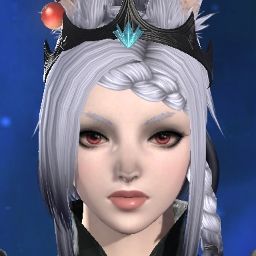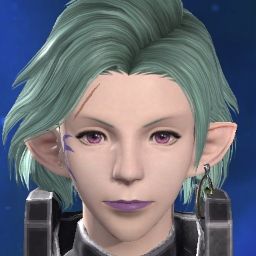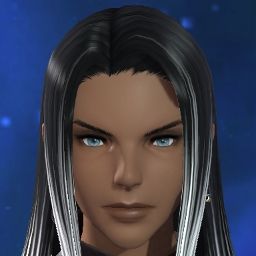What he wanted was for WoL to prove worthy of inheriting the Ancient's legacy so the future could be laid in their hands.
In order for that to be the case they would have had to intentionally create sapient life in the second sacrifice to Zodiark, given that if any had existed beforehand it would have been wiped out by that point.
75% of the population of Amaurot. The plan wasn't to bring back everybody that died during the Final Days, it was to bring back those survivors that had sacrificed themselves to Zodiark.
Why do many creatures, such as Sin Eaters for example, feed specifically on living aether? We're never told Eaters consume souls, just living aether - We can presume that this type of aether is somehow different or of exceeding potency in some way.
-
01-22-2022 05:43 PM #601(6)
-
01-22-2022 09:32 PM #602
It was idiotic not because I misunderstood it, but because apparently there are a number of people who completely missed what the entire story was actually about. It can be summed up in one scene - right hereZodiark forestalled The Final Days, it would not have stopped them. In the end, their civilization would have fallen to apathy and sought death as a release even and especially if they all came back. This is not conjecture or headcanon, this is what we were actually shown in Elpis. The entire notion of once your purpose has been served you "return to the star" is tantamount to saying there is nothing to live for once you've achieved whatever it is you want to achieve. If you do some of the sidequests in Elpis, it is even more on the nose.
There was also a second hint on where the star was headed with Amon and Emperor Xande, which in many ways was parallel to Alexander the Great's "For there were no more worlds left conquer." Xande likewise sought death as a release.
The plan to summon Zodiark is idiotic because it is a temporary solution (albeit one that lasted thousands of years) to a catastrophic problem. "Why can't we just go back to the way things were?" That's what the Ancient who turned to Venat asked. Therein lies the problem. A problem which the only solution was to Sunder. This accomplishes two things. First, on a metaphysical level, the act of suffering brings balance to joy.
"The truth has to be melted out of our stubborn lives by suffering. Nothing speaks the truth, nothing tells us how things really are, nothing forces us to know what we do not want to know except pain. And this is how the gods declare their love. Truth comes with pain." - Aeschylus, The Oresteia.I'm a Greek mythology nerd and there is some serious Greek tragedy influence all over Endwalker.
Pain and suffering in the context of the story provides a bulwark against the apathy that was already creeping throughout Ancient society. The Ancients lived in a utopia where they wanted for nothing. That is why it was so unusual for Hermes to experience despair. They knew very little of it. Again, THIS IS THE PROBLEM. As long as this "perfection" exists, there will come ruin. No amount of sacrifices is going to stop that.
Second, on a strategic level. Thinning out our aether makes us more susceptible to dynamis, and therefore better able to combat it. Coupled with the hard road of suffering and failure, to stay the course no matter what, this is what gives the star the best chance of survival.
And I said earlier in this thread, I am hard-pressed to think of a worse idea than Venat telling the Convocation what she knew. It would have made a bad situation infinitely worse.(9)
-
01-22-2022 10:36 PM #603Player

- Join Date
- Jul 2015
- Location
- Meracydia
- Posts
- 3,883
- Character
- Lythia Norvaine
- World
- Gilgamesh
- Main Class
- Viper Lv 100
Emet-Selch: 'Once the rejoining of worlds is complete, Zodiark will regain His full strength and shatter his prison. Then we shall offer up the Source's remaining inhabitants in sacrifice, that we might resurrect our brethren who died to bring Zodiark into existence.'
Smashing plan. Little contentious, but a great start. You should definitely vote for it at the next meeting.(6)
-
01-22-2022 10:48 PM #604
Again, that plan was built out of twelve thousand years of torment and despair. It was very likely not their *original* plan.
(5)
-
01-22-2022 10:51 PM #605
The ones who initially sacrificed themselves did so voluntarily, and we do not know that the lives they intended to sacrifice to bring back their brethren were sentient. Like as not, they were not. Also, the Ancient's society had been utterly stable for thousands upon thousands of years prior to the Final Days. There is no reason to think that once they were stable again post third sacrifice that they would ever have gone down the same path that world did.
(4)Last edited by redheadturk; 01-22-2022 at 10:53 PM.
-
01-22-2022 11:01 PM #606Player

- Join Date
- Jul 2015
- Location
- Amaurot
- Posts
- 4,449
- Character
- Tristain Archambeau
- World
- Cerberus
- Main Class
- Black Mage Lv 90
No, that is exactly why it was idiotic. You mixed up the sequence of events and omitted the fact that Zodiark is essential to buffering the planet and restoring the star, and the reason as to why the sacrifice was even needed, while at the same time omitting that they were working on deliberately limited info.
The writers are free to present a theme. We are free to interpret it as we like and consider whether what they put in commits that to being the only possible outcome or one where we think what was presented is consistent with said theme.but because apparently there are a number of people who completely missed what the entire story was actually about.
No, it really is both conjecture and headcanon all in one, because it does not really address the question of how they would've adjusted their plan had they been given the necessary information. Linking me the stylised cliff notes version of things I am already very well acquainted with has little hope of persuading me. As to their stance to death? They also saw themselves as the very lifeblood coursing through the planet. It is not at all strange to me that such long-lived creatures would take such an approach to death given how the soul cycle works in the setting. The error here is in presuming that they'd not adjust their views if they were given a full explanation of why Venat had these concerns beyond merely stating suffering is necessary at a rather bad time for them. Again, stylised scene, so maybe she tried harder, but in the absence of a full and proper explanation, I can see why they'd not have been swayed. We're shown in Elpis that, when given good cause, they do very readily adjust their ways.It can be summed up in one scene - right hereZodiark forestalled The Final Days, it would not have stopped them. In the end, their civilization would have fallen to apathy and sought death as a release even and especially if they all came back. This is not conjecture or headcanon, this is what we were actually shown in Elpis. The entire notion of once your purpose has been served you "return to the star" is tantamount to saying there is nothing to live for once you've achieved whatever it is you want to achieve. If you do some of the sidequests in Elpis, it is even more on the nose.
...and who but Venat knew this? Her entire plan hinges on Zodiark being summoned, because of that shielding effect he provided, as well as his ability to restore the star from its moribund state. All covered in the sources I provided, and glossed over by that stylised scene.The plan to summon Zodiark is idiotic because it is a temporary solution (albeit one that lasted thousands of years) to a catastrophic problem. "Why can't we just go back to the way things were?"
Nah. That was her solution to it. But the only one? That is what Kizuya is referring to as headcanon.That's what the Ancient who turned to Venat asked. Therein lies the problem. A problem which the only solution was to Sunder.
Did you do the sidequests? Others had similar sentiments to him. With a bit of pep talk, they got over it and found new resolve. Hermes was unique in being dissatisfied with any answer he got, something even surviving in Amon, an entirely "new" person. And G'raha surmises that there is an inherent orientation in certain souls, which I'd say is borne out by this and other similar examples. If they genuinely risked this fate, were told about it in explicit terms and not through platitudes, when they were grieving the near-loss of their star and countless of their people, and thus were given a proper chance to re-evaluate things going forward, as well as making adjustments as necessary to their society to avoid such a possibility, and still resolved not to do anything about it? Then I might agree, although it'd be their choice to make."The truth has to be melted out of our stubborn lives by suffering. Nothing speaks the truth, nothing tells us how things really are, nothing forces us to know what we do not want to know except pain. And this is how the gods declare their love. Truth comes with pain." - Aeschylus, The Oresteia.I'm a Greek mythology nerd and there is some serious Greek tragedy influence all over Endwalker.
Pain and suffering in the context of the story provides a bulwark against the apathy that was already creeping throughout Ancient society. The Ancients lived in a utopia where they wanted for nothing. That is why it was so unusual for Hermes to experience despair. They knew very little of it. Again, THIS IS THE PROBLEM. As long as this "perfection" exists, there will come ruin. No amount of sacrifices is going to stop that.
Which, once more, is but one way to do it. It took no more than a handful of sundered champions and the scions to defeat Endsinger. Veloran has already done an excellent job here outlining potential alternatives they had at their disposal, nevermind the huge question mark that is Elidibus as the WoL.Second, on a strategic level. Thinning out our aether makes us more susceptible to dynamis, and therefore better able to combat it. Coupled with the hard road of suffering and failure, to stay the course no matter what, this is what gives the star the best chance of survival.
Mere say-so.And I said earlier in this thread, I am hard-pressed to think of a worse idea than Venat telling the Convocation what she knew. It would have made a bad situation infinitely worse.
Why are you citing the plan after the Sundering as evidence of what it was before the Sundering? Nevermind that the remaining ancients were also sundered in the process (including Emet-Selch's close buddy), whereas the original plan was to sacrifice the vague "new life" to restore those sacrificed, and thus this cannot be the same plan.
I think it's important to be clear on what we know about with that whole conundrum. Creations which gain souls are living beings, but that can range from anything from an animal, plant life or monster to rare familiars like Meteion (although that isn't explicitly addressed in the story because she was never subjected to a proper examination, possibly because the creator's soul aether has to be distinguished from a genuine soul through someone with precise soulsight.) The story never specifies what this "new life" is except for the fact that elements of it had souls, and Venat's faction believed it should inherit the star in the future. At the same time, this is for pragmatic reasons, and leads me to think it may well have been a combination of animals, plant life and familiars that had qualified for souls, although ancients are also a possibility. But the story never specifies, so we can but speculate. I'm agnostic as to the morality of the plan without knowing specifics, and furthermore, without knowing how they'd adjust their views on it if the full truth had been disclosed to them - they may have come to the view that waiting until Meteion was driven back and dissolving Zodiark to free the souls when it was safe to do so may have been the better course of action. He was deemed necessary at an absolute minimum to protect the star, but they didn't know that the root cause was a removable one.(8)Last edited by Lauront; 01-22-2022 at 11:43 PM.
-
01-22-2022 11:11 PM #607Player

- Join Date
- Jul 2015
- Location
- Meracydia
- Posts
- 3,883
- Character
- Lythia Norvaine
- World
- Gilgamesh
- Main Class
- Viper Lv 100
Same person, same value system, same question. If you thought that you were going to be one of Emet's chosen in the Ascians' new paradise, I have a bridge to sell you.
Also, can you imagine the Ancients rocking up to Zodiark with a bunch of non-sentient sticks, plants, and rocks? 'Er, how much for that soul over there?'(1)
-
01-22-2022 11:14 PM #608Player

- Join Date
- Jul 2015
- Location
- Amaurot
- Posts
- 4,449
- Character
- Tristain Archambeau
- World
- Cerberus
- Main Class
- Black Mage Lv 90
Keep your bridge to yourself. I wouldn't want you to go homeless.
(4)When the game's story becomes self-aware:

-
01-22-2022 11:16 PM #609I think it should also be noted that ensouled does not necessarily equal sentient in this context. Some carnivorous plants may be ensouled, but I would certainly never believe they were sentient. lol. People, and familiars with the ability to speak and possessing of self awareness, those are sentient.I think it's important to be clear on what we know about with that whole conundrum. Creations which gain souls are living beings, but that can range from anything from an animal, plant life or monster to rare familiars like Meteion (although that isn't explicitly addressed in the story because she was never subjected to a proper examination, possibly because the creator's soul aether has to be distinguished from a genuine soul through someone with precise soulsight.) The story never specifies what this "new life" is except for the fact that elements of it had souls, and Venat's faction believed it should inherit the star in the future. At the same time, this is for pragmatic reasons, and leads me to think it may well have been a combination of animals, plant life and familiars that had qualified for souls, although ancients are also a possibility. But the story never specifies, so we can but speculate. I'm agnostic as to the morality of the plan without knowing specifics, and furthermore, without knowing how they'd adjust their views on it if the full truth had been disclosed to them - they may have come to the view that waiting until Meteion was driven back and dissolving Zodiark to free the souls when it was safe to do so may have been the better course of action. He was deemed necessary at an absolute minimum to protect the star, but they didn't know that the root cause was a removable one.(4)
-
01-22-2022 11:17 PM #610Player

- Join Date
- Feb 2019
- Location
- Ul’dah
- Posts
- 822
- Character
- Eara Grace
- World
- Faerie
- Main Class
- Paladin Lv 100
Let me first point out the fallacy of saying that a story’s writing is relying on contrivances, but only when it prevents your preferred direction from being taken. Pointing out that they’re are problems with Ancient society, they’re obsession with only perfection and their willingness to sacrifice whatever it would take to birth a world without fear or suffering, even eschewing morals to do so, is not contrivance. It’s a logical and thematically appropriate failing.
And forgive me, but if I’m reading you right I think you’ve missed the point of Dead Ends and the message of Ultima Thule. Etheirys will eventually die. All things will eventually die. It was that revelation that broke the Ea. The point Venat makes, the point of the Sundering and defeating Meteion, was that even with the inevitability of the end, you should fight for tomorrow. That even if only for another day, people will be able to live, find beauty in world, hear, feel, and think. And that that is worth fighting for. If the Ancients knew that there was nothing they could do to stave off the end, that no sacrifice would halt it, they would break. The Ea did, the Omicron did, the dragons did, advanced civilization after advanced civilization did. To believe that the Ancients, possessing the flaws they were, would be different for no reason other than saying they are somehow special, is foolish. Only a civilization that accepts the inevitability of suffering, that looks with both eyes at the inevitability of the end, and still can find joy and happiness, will not. And even then only for a time.
This seems arbitrary. Why wouldn’t a carnivorous plant capable of being bestowed a soul, a soul that will carry memories and experiences no less than a humans, be unworthy of consideration?(3)Last edited by EaraGrace; 01-22-2022 at 11:21 PM.









 Reply With Quote
Reply With Quote






